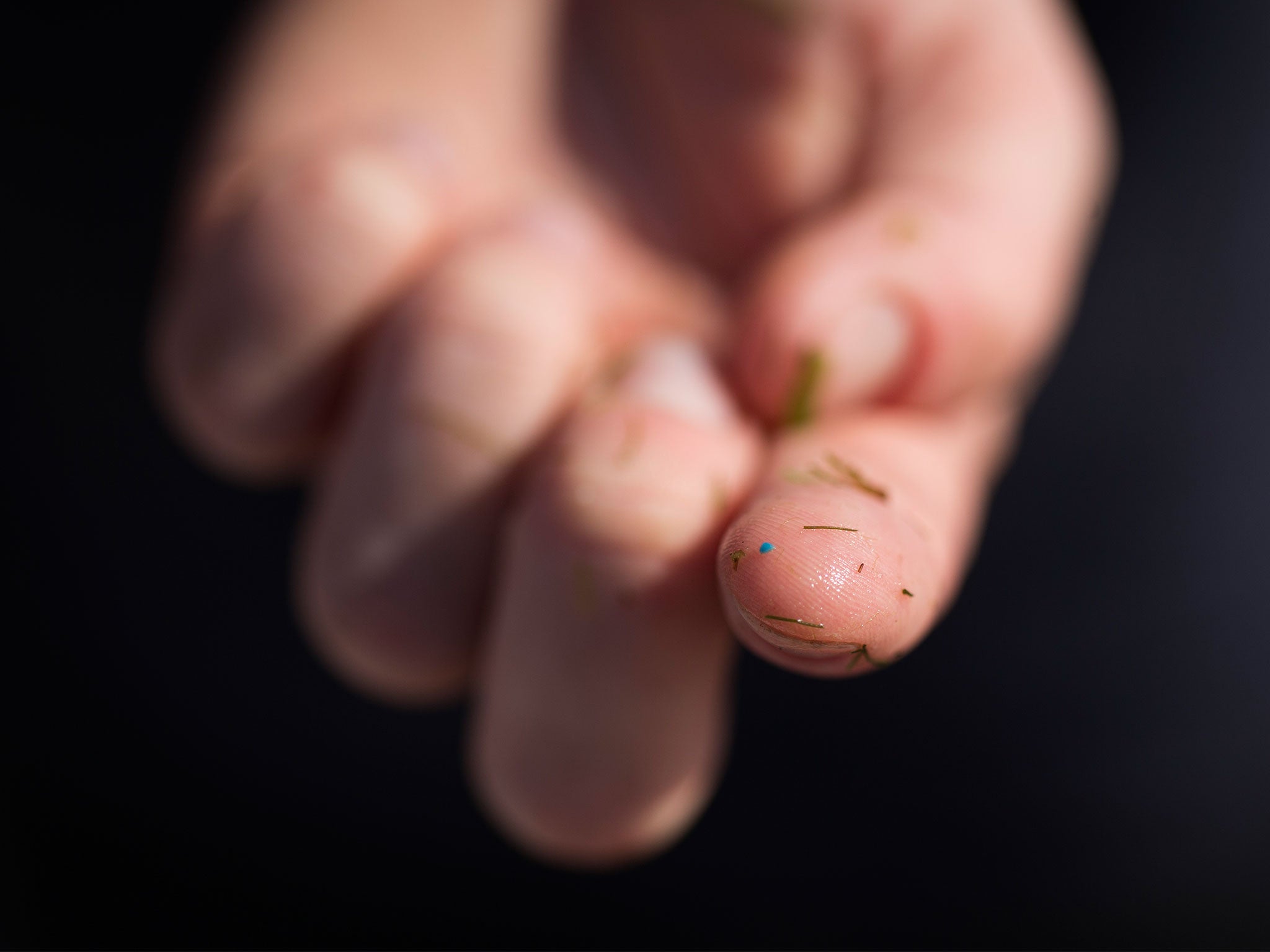Ban on harmful microbeads could be in breach of EU free trade law, government warned
Government ban on microplastics found in products including face scrubs and toothpaste could be delayed if found to restrict free movement of trade

Your support helps us to tell the story
From reproductive rights to climate change to Big Tech, The Independent is on the ground when the story is developing. Whether it's investigating the financials of Elon Musk's pro-Trump PAC or producing our latest documentary, 'The A Word', which shines a light on the American women fighting for reproductive rights, we know how important it is to parse out the facts from the messaging.
At such a critical moment in US history, we need reporters on the ground. Your donation allows us to keep sending journalists to speak to both sides of the story.
The Independent is trusted by Americans across the entire political spectrum. And unlike many other quality news outlets, we choose not to lock Americans out of our reporting and analysis with paywalls. We believe quality journalism should be available to everyone, paid for by those who can afford it.
Your support makes all the difference.A UK ban on toxic plastic microbeads in cosmetic products could be unenforceable, as it breaches EU law, a new report has warned.
Last month, environment secretary Andrea Leadsom vowed to ban the sales of products containing the dangerous microscopic plastic particles by the end of the year, following pressure from environmentalist campaigners.
But a detailed report published by the House of Commons Library has warned that any attempt to impose a unilateral ban could break EU free trade laws.
“As a national ban on microbeads could be considered to restrict the free movement of goods, a Member State would have to show that the ban was justified,” the report stated.
Researchers have noted that so far no EU country has successfully banned microbeads and warned that a ruling against them could “contravene the EU Treaties that prohibit member states from measures that restrict the free movement of goods”.
The report, which provides impartial research publications for members of parliaments, said EU regulations do allow for product restrictions for “non-economic environmental reasons”, but warned that ministers would have to prove such a ban was proportionate, backed by scientific evidence and did not discriminate against producers in any EU state.
It also advises the proposed legislation could be open to legal challenge by cosmetics companies affected by the ban.
An estimated 16-86 tons of the plastic microbeads, which are commonly found in cosmetics such as exfoliating scrubs and some toothpastes, are washed into the sea each year from the UK, previous research papers have shown.
These microplastics are in ingested by marine life and have been found in zooplankton, mussels, oysters, seals and whales, along with several other species.
Last year the cross-party Environmental Audit Committee warned that increasing amounts of damage was being done to marine life in this way, which could, in turn, provide a health risk to humans.
Officials from the Cosmetic Toiletry and Perfumery Association have called the proposed ban unnecessary, as it is predicted that the majority of microbeads will be removed from cosmetics by 2020 under voluntary agreements.
But Mary Creagh, Labour chairman of the Commons environment audit committee, said: “Consumers want to see these harmful plastics removed and many of the big players are doing it – it would fly in the face of consumer wishes for the industry to take legal action.”
Government ministers in Austria, Belgium, Sweden, Luxembourg and the Netherlands have also called for an EU-wide ban on use of the particles.
Following Ms Leadsome’s promise to enforce a UK ban, the Government is said to be exploring an extension of the ban to other household products such as washing powder and household cleaners.
A coalition of environmental groups – the Environmental Investigation Agency, Fauna & Flora International, Greenpeace UK and the Marine Conservation Society – have welcomed the cosmetics ban, but agreed it needed to be broader in order to have a worthwhile impact.
“[The ban] must cover all microplastics as marine life doesn’t distinguish between plastic from a face wash and plastic from a washing detergent,” the groups said in a statement.
“The microbeads ban must cover all plastics in all household and industrial products that can go down our drains.
Join our commenting forum
Join thought-provoking conversations, follow other Independent readers and see their replies
Comments